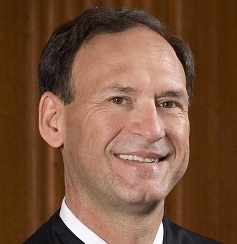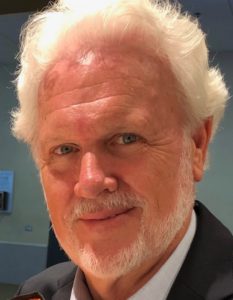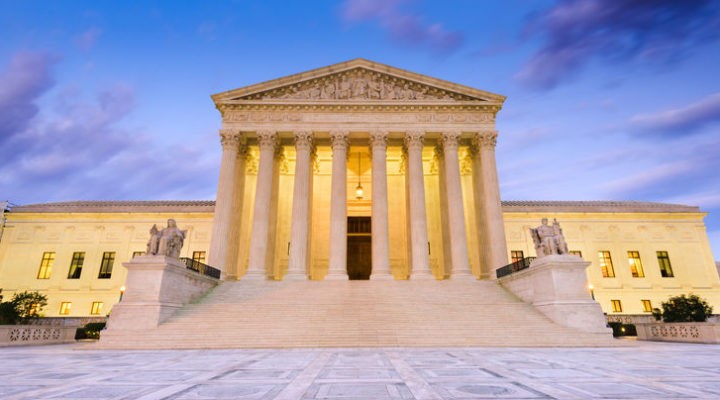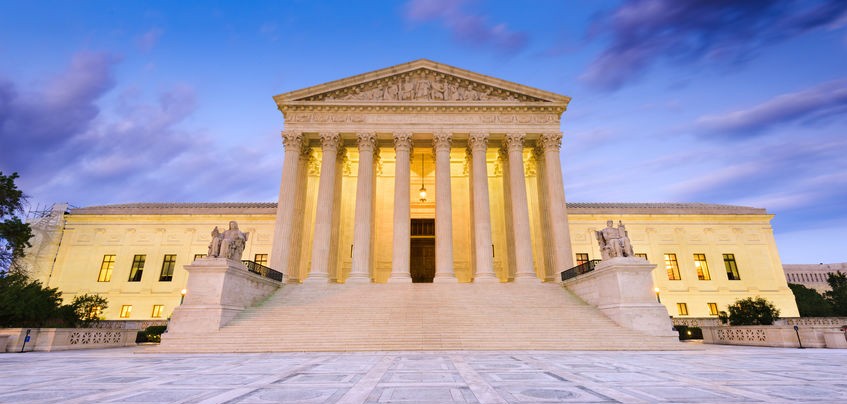Supreme Court Associate Justice Samuel Alito has penned, we now know, the draft of a Supreme Court decision that contains at its core a lie.
He wrote: “Nothing in this opinion should be understood to cast doubt on precedents that do not concern abortion.”
This is a deliberate falsehood, and Alito knows it is a deliberate falsehood.
The legal opinion, when officially promulgated this month or next, will overturn the 1973 decision known as Roe v. Wade. That decision recognized the constitutional right of personal privacy which, in turn, justified the freedom of women to choose to carry a fetus to term or not. It said this decision by a woman could not be denied or unduly burdened by government regulations.

Samuel Alito
But this Alito opinion does so much more than undermine a fundamental freedom. It lays the groundwork to undo 70 years of legal progress in the United States.
The roots of this movement to overturn the right to privacy go back to another decision by the Supreme Court. In 1954, the court unanimously declared that “separate but equal” public schools are unconstitutional. Three years later, President Dwight D. Eisenhower dispatched federal troops to Little Rock, Ark., to force the integration of the high school there.
“The roots of this movement to overturn the right to privacy go back to another decision by the Supreme Court.”
This assertion of federal authority, by the court, the president and the military, over the decisions by state and local authorities, is the background for this current opinion by Alito.
In the years that followed, federal authorities declared prayer and Bible reading in public schools to be unconstitutional, overturned state laws that prohibited interracial marriage, and permitted gay and lesbian people to legally marry. These are but the legal highlights of a decided trend in American life of increased governmental authority, especially at the federal level.
This has created widespread animosity among the American people — some of them, anyway. Not me, and probably not you. I actually appreciate the role of the federal government in inspecting food, regulating air traffic, protecting the right to vote, setting safety standards for products (including cars), supporting education (especially HBCUs), building roads, dams and bridges, investigating crime, collecting taxes, delivering mail, welcoming immigrants and refugees, and defending the rights of minorities.
During the recent pandemic, I adhered to the protocols for safety established by the Centers for Disease Control and rejoiced when my congregation did the same. We did not consider these safety measures an infringement upon our freedom to worship. In fact, the resultant broadcast of our worship services has proved to be a wonderful new ministry of our church, and we thank many of you for watching.
But there are many people, including some I know personally, who take exception to this expanded role of the federal government. They prefer, they say, no government or local government or state government. Perhaps like the government in Arkansas in 1957 (but, of course, they never admit it quite like that).
To pursue this resistance to federal power, some of these people formed The Federalist Society for Law and Public Policy Studies, commonly known as The Federalist Society. That was 1982. The purpose of this now national organization is “checking federal power, protecting individual liberty and interpreting the Constitution according to its original meaning” (as the Wikipedia article reads).
For 40 years, this organization has trained thousands of young lawyers and activists in the protocols of countermanding the exercise of federal power. And one way they have done this is by grooming men (mostly) to serve as judges in the hopes they have opportunity to overrule this modern tradition of federal power — especially as it pertains to the freedom to give birth or not.
“Six of the current nine members of the Supreme Court, including Judge Alito, are (or have been) members of The Federalist Society.”
Please note that six of the current nine members of the Supreme Court, including Judge Alito, are (or have been) members of The Federalist Society.
Many people (conservatives) will howl about the leak that made this Alito abortion decision available to the public; others (liberals) will growl about this effort to undermine an important freedom of the American people. But a few — and I am one of them — will look beyond these presenting issues and see the lie at the core of this decision.
Alito writes (and here I repeat myself for emphasis): “Nothing in this opinion should be understood to cast doubt on precedents that do not concern abortion.”
Alito knows this is intentional obfuscation of intent and impact. He knows his deeper purpose is a wider attack on modern legal theory. He knows that undermining federal power when it comes to the right of privacy (and abortion) is also undermining federal power when it comes to so much more, like sending troops into Arkansas to ensure that Black people can attend the same schools as white people.
Alito knows this; just like court candidates Barrett, Kavanaugh and Gorsuch knew they were lying (or misleading) when in their confirmation hearings they intentionally camouflaged their intent to overturn Roe v. Wade. They also were lying and knew they were lying.
All of this — the lying, the duplicity, the attack on personal freedom and federal power — is bad for the court, bad for women and bad for the American people.
“It is a sin to tell a lie,” crooned the late, great John Prine in his humorous song, “Please Don’t Bury Me Down in the Cold, Cold Ground.” And he got that from the Bible, I am sure, where it reads, “Thou shalt not bear false witness.”

Dwight Moody
Dwight A. Moody is an author, minister, scholar and host of the media site The Meeting House.
Related articles:
Alito and public opinion reveal the link between Roe and a broader white Christian nationalist agenda | Opinion by Robert P. Jones
On Samuel Alito’s first argument day, court agrees to hear abortion case
Why I’m a pro-choice Christian and believe you should be too | Opinion by Laura Ellis


